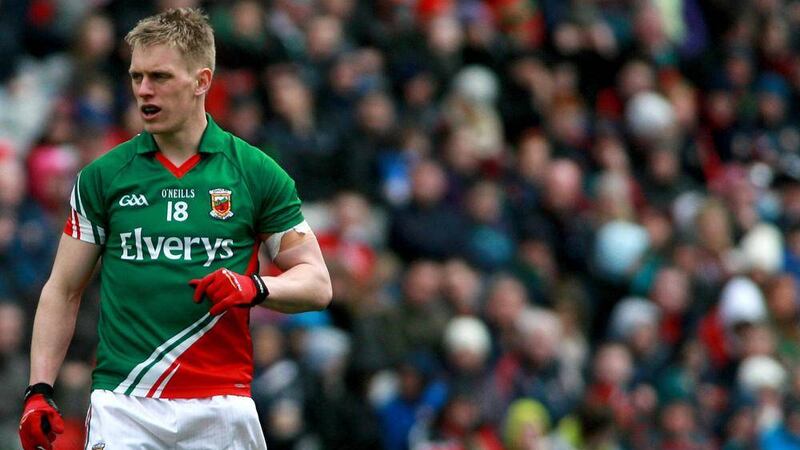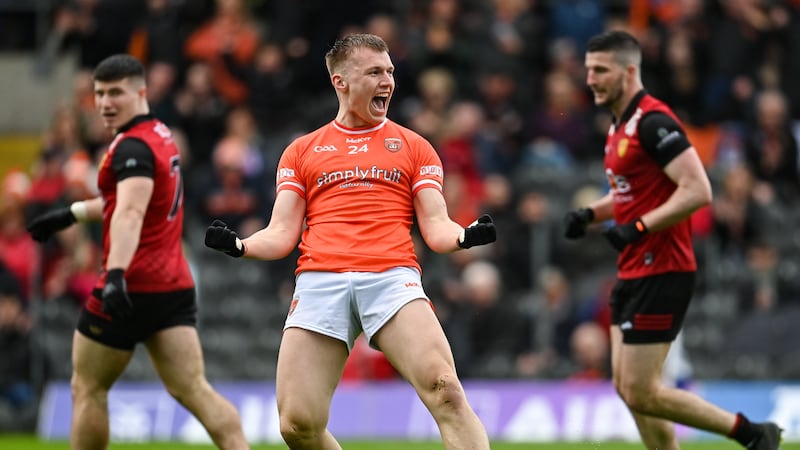'Lost my appeal to the red card I got in club game. Irony: any appeal I've won in the past I was as guilty as sin. The one time I'm innocent, I lose.' Éamon McGee @EamonMcGee
THANK you, Éamon McGee. Thank you for your candid and refreshing honesty.
It's good to know that some players actually realise they are guilty of the offences for which they routinely escape punishment.
Mayo's Kevin Keane is the latest example of a player successfully challenging what appeared to be a watertight case. Captured on television throwing his fist towards Michael Murphy's face, Keane received a red card in the closing stages of the All-Ireland quarter-final.
While Keane didn't deliver a haymaker, the referee still made the correct decision. Under the rules of the GAA, even striking with 'minimal force' warrants an instant dismissal. But Keane appealed the red card and the CHC (Central Hearings Committee) overturned the ban recommended by the CCCC (Central Competitions Control Committee).
Amid the fallout from yet another suspension which has failed to stick, there has been some cribbing about the fact that two of the CHC's most experienced members were not involved in the decision. Both Liam Keane and David Hallissey cited a conflict of interest. Keane is the chairman of the CHC. A solicitor from Meath, Keane knows David Gough, the referee who issued the red card. Hallissey is from the Dublin, the team Mayo met in last week's semi-final.
It would be highly presumptuous to conclude the committee would have reached a different decision if the aforementioned individuals had been able to lend their expertise to the matter.
The red card issued to Lee Keegan in last year's All-Ireland semi-final against Kerry kicks that theory into touch. Keane's and Keegan's cases are somewhat similar. While Keegan didn't exactly drive his boot into Johnny Buckley, the Mayo defender still struck out with his foot. Anyway, that distinction is actually quite meaningless.
Many people fail to appreciate that the playing rules of Gaelic football are incredibly strict. Under Rule 5:16, not only is it a red card offence to kick an opponent, a player should be sent-off if they even attempt to kick or punch someone. So even if Keegan only swung a boot at Buckley, the referee would have been entirely justified if he had ordered him off the field.
Like Keane, Keegan also won his appeal. It needs to be stressed that Mayo aren't the only county that excels at getting players off the hook. The trend is nationwide. At club and county level, disciplinary boards have become increasingly impotent. Unable to enforce suspensions, the sound intentions of good GAA officials are being undone by lawyers and loopholes. The situation is now farcical.
The root of the problem stems from the gulf in legal knowledge between the men who recommend bans and the men who challenge them. This is extremely prevalent at club level.
Take a look at any county board. More often than not, the CCC is made up entirely of lay people. In contrast, the Hearings Committee will have at least one or two lawyers. The lawyers are essentially a safety mechanism. If they identify a ruling that won't withstand legal scrutiny by a higher body, they will reject the recommendations of their colleagues in the CCC.
At county board level, a CCC that doesn't have a lawyer on board faces an incredibly difficult task. Without any formal legal training, these individuals are expected to oversee a process that will be picked to pieces by solicitors and barristers from both sides. The arguments forwarded by these lawyers are often jaw-dropping in their complexity and pedantry. Anyone who is any doubt should visit the DRA's website (sportsdra.ie) and examine the cases which are published online.
Given that nearly all appeals are heard by committees that include solicitors, it stands to sense that the bodies charged with enforcing rules should have some legal personnel too. But that's not the case. And no one should underestimate the difficulty of the task facing a CCC. All too often, they are easy fodder for the lawyers who nitpick through every word and phrase of a referee's report.
Of course, all disciplinary systems are open to interpretation. It could be argued that the high volume of successful appeals is proof the GAA operates a fair and unbiased system. But that's being too kind. It would be more accurate to state that the GAA's disciplinary system is just plain bad. A system that's implemented by amateurs and challenged by professionals is fundamentally flawed.
In England, the Football Association has a near perfect record in disciplinary cases involving clubs, players and managers. Between 2010 and '11, the English FA's version of the DRA heard 473 cases - and only two of them ended in 'not guilty' verdicts. While that level of success is actually a cause for concern, it's worth noting the conviction rate in British Crown Courts hovers around 80 per cent.
Think about it. If someone was caught on closed circuit television head-butting, kicking, punching – or gouging someone with a stick – what chance would they have of escaping conviction? Yet commit similar - or perhaps graver - offences on a GAA pitch, even one that's surrounded by television cameras, and there's a fair chance you'll not even miss a match. That can't be right.
But that's what happens when you have a disciplinary process which fails to punish players, who, in the words of Éamon McGee are 'as guilty as sin'.
OFF THE FENCE
Does the GAA disciplinary system need an overhaul?
24-HOUR SPORTSPHONE
02890 337457
TEXT
07624 802592








